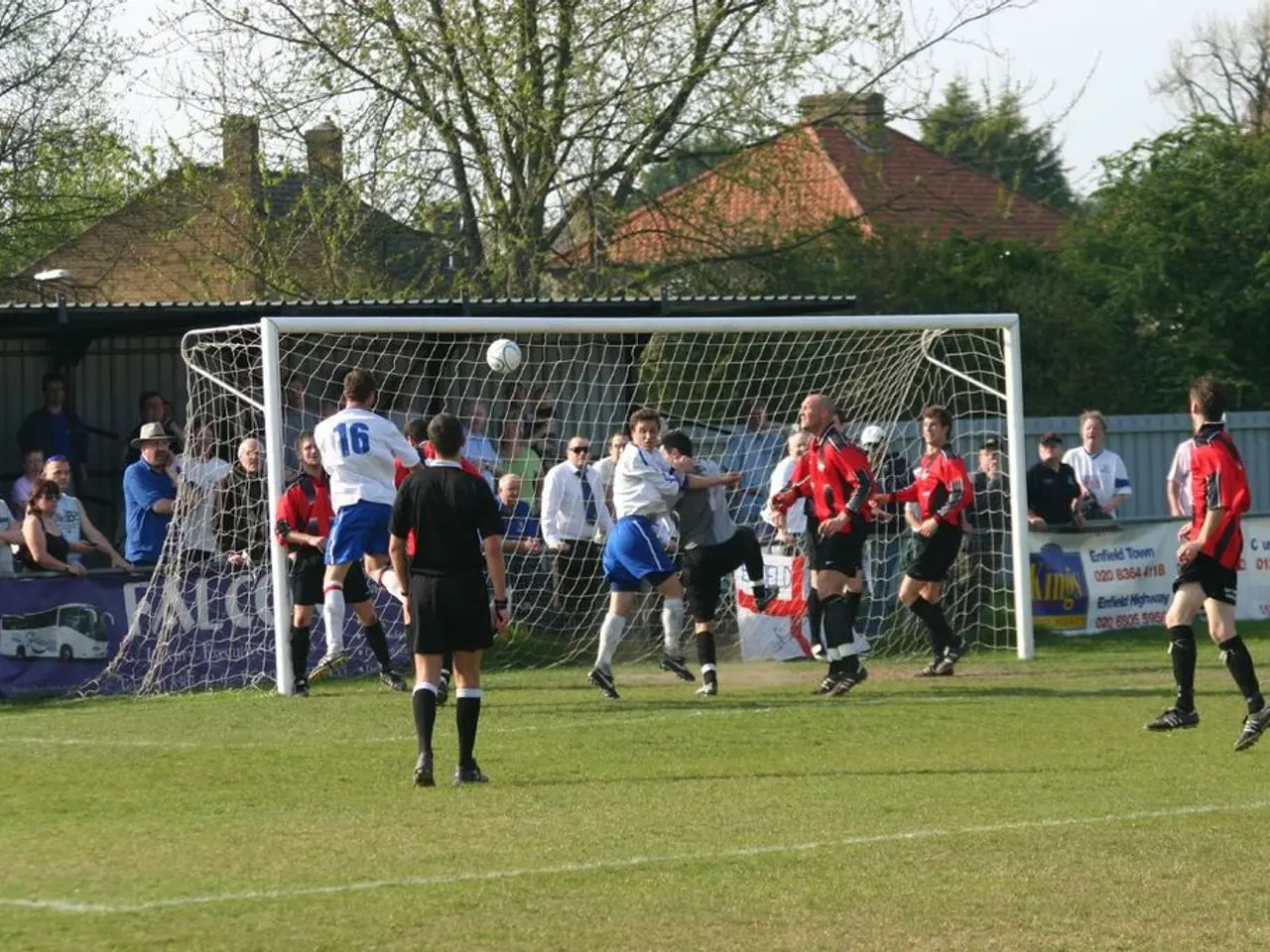Controversial Not Guilty Verdict in Pro-Palestine Speech Case - Unresolved Dispute over Ruling - Halfway through the judicial process, the Court of First Instance remains silent on the matter of interpreting Article 85 (1) of the Treaty.
In a landmark ruling, a Berlin court has acquitted human rights activist Yasemin Acar of charges related to using the slogan "From the river to the sea, Palestine will be free." This decision, made on July 31, 2025, marks a significant step in establishing that advocating for Palestinian freedom with this slogan is not a criminal offense under German law.
The activist, a 38-year-old woman, was charged with using symbols of terrorist organizations, resisting and assaulting law enforcement officers, defamation, and attempted bodily harm. However, the court found no criminal offense due to several reasons, including the defendant not intending to support the Hamas, which the Federal Ministry of the Interior has classified as a symbol of the banned Islamic Palestinian organization.
The question of whether the slogan is a symbol of Hamas is controversial in legal practice and literature. The Berlin Regional Court made a decision in April 2025 stating that the interpretation of this slogan is contentious. The courts currently evaluate the criminality of the slogan differently, with no final legal ruling yet.
The acquittal has sparked both praise and criticism. Supporters argue that it strengthens the protection of pro-Palestinian political expression in Germany. On the other hand, critics, such as the International Auschwitz Committee, have expressed disappointment, calling the verdict a "cynical and bitter message" for Holocaust survivors.
The broader discourse remains contentious. There are political and ideological tensions in Germany connected to Israel-Palestine issues. Some oppose the use of the slogan or related activism, attempting legal actions perceived as attempts to restrict pro-Palestinian expression. This reflects a complex environment where courts sometimes face pressure and polarization over how to interpret politically charged speech.
The future implications for freedom of speech in Germany include continued legal defense and acquittals of activists using the slogan, which may strengthen the protection of pro-Palestinian political expression. However, given ongoing political pressures described as “lawfare,” activism may still face challenges, and courts might differ in rulings depending on case specifics.
The evolving jurisprudence seems to lean toward recognizing these slogans as political speech rather than incitement or criminal advocacy, which would uphold democratic values of freedom of expression despite controversy. The trend toward acquittals indicates a cautious but clear recognition of freedom of speech rights for politically sensitive expressions concerning Palestine in Germany.
References: 1. Berlin Court Acquits Activist Using "From the river to the sea, Palestine will be free" Slogan 2. German Court Acquits Activist Charged with Using Hamas Symbol 3. Court Decision on "From the river to the sea, Palestine will be free" Slogan 4. The Controversy Surrounding the "From the river to the sea, Palestine will be free" Slogan in Germany 5. Freedom of Speech and the "From the river to the sea, Palestine will be free" Slogan in Germany
- The acquittal of Yasemin Acar in a German court case has led to a debate among EC countries about the balance between freedom of speech and the prohibition of terrorist symbols in political expression, particularly with regards to the slogan "From the river to the sea, Palestine will be free."
- Social-media platforms and entertainment industry figures in Germany are discussing the implications of the court's decision on the slogan, with some voicing support for the protection of pro-Palestinian political expression and others expressing concerns about potential glorification of terrorism or disrespect to Holocaust survivors.
- Politicians in Germany are scrutinizing the decision, with some viewing it as an important victory for freedom of speech and others considering it a threat to the country's commitment to combating terrorism and upholding the principles of "Never Again," echoing the sentiment expressed by the International Auschwitz Committee.








